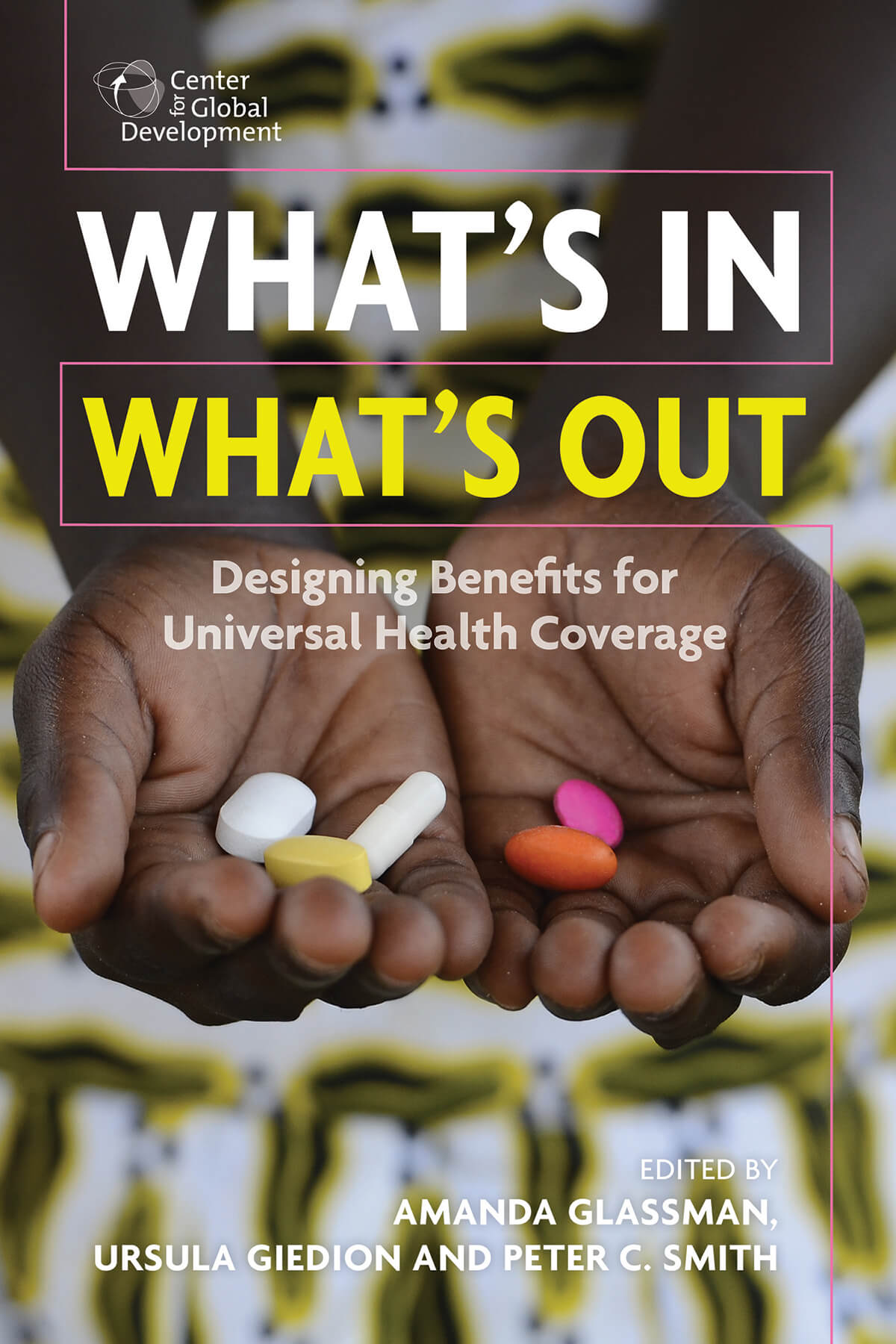What’s In, What’s Out: Designing Benefits for Universal Health Coverage
Many low- and middle-income countries now aspire to universal health coverage, where governments ensure that all people have access to the quality health services they need without risk of impoverishment. But for universal health coverage to become reality, the health services offered must be consistent with the funds available—and this implies tough everyday choices for policymakers that could be the difference between life and death for those affected by any given condition or disease. The situation is particularly acute in low- and middle income countries where public spending on health is on the rise but still extremely low, and where demand for expanded services is growing rapidly.
A contribution from iDSI and the Center for Global Development, What’s In, What’s Out: Designing Benefits for Universal Health Coverage, edited by Amanda Glassman, Ursula Giedion and Peter Smith—argues that an explicit Health Benefits Package, to be funded with public monies, is an essential element of a sustainable and effective health system, and considers the institutional, fiscal, methodological, legal and ethical dimensions of their design and implementation. Published in 2017, What’s In, What’s Out? explains how health services offered must be consistent with the funds available for Universal Health Coverage to become a reality. The situation is particularly acute in low- and middle-income countries, where public spending on health is on the rise but is still extremely low, and where demand for expanded services is growing rapidly.

What’s In, What’s Out: Designing Benefits for Universal Health Coverage argues that the creation of an explicit health benefits plan—a defined list of services that are and are not available—is an essential element in creating a sustainable system of universal health coverage. With contributions from leading health economists and policy experts, the book considers the many dimensions of governance, institutions, methods, political economy, and ethics that are needed to decide what’s in and what’s out in a way that is fair, evidence-based, and sustainable over time.
View accompanying policy brief on the iDSI Knowledge Gateway